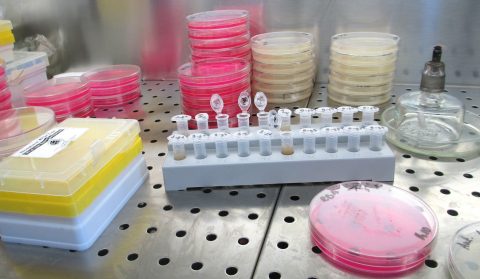On Friday and Saturday this week, the 14th Médecins Sans Frontières (MSF) Scientific Days programme will kick off in London at the Royal Society of Medicine. These events are followed by a day in New Delhi, India on May 27th and in Blantyre, Malawi on June 22nd. Sarah Venis from MSF lets us know what we can expect at the London event
Nick Riddiford is a postdoc in developmental biology in Institut Curie in Paris. Last year he surveyed scientists to find out more about their working practices. He published his results on F1000Research as a research article. He explains more here about why he carried out the survey and what he thinks needs to change.
This week is Mental Health Awareness Week, and the Mental Health Foundation hopes to improve the wellbeing and mental health of Britain, after their survey revealed that the nation’s state of mental health is poor and appears to be deteriorating.
As the Foundation is investigating ways to prevent mental health and enhance society’s mental state, I thought I would investigate some of the research that has been recommended by our F1000Prime Faculty Members on the suggested influences and causes of mental illness, as well as possible treatments.
It is time to re-think how biomedical applications are built and adopt new strategies that ensure quality, efficiency, robustness, correctness and reusability of software components. Dr Luis Bastiao Silva explains how engaging end-users during the development process will help to ensure that software applications fit the needs of general clinicians and practitioners.
One of the latest findings in neuroscience made headline news, as a protein therapy could slow down the human’s brain ageing process and in the future could potentially be used as a preventative against neurological disorders such as Alzheimer’s. In recognition of this work, we are highlighting the top 3 recommended articles in the area of tissue rejuvenation in this month’s blog post as well as the usual top 3 articles for the month and Hidden Jewels.
Better integration of adult learning theory could improve practical delivery of training and education in day-to-day surgical practice.
Collaborations can be a vital means to tackle complex scientific problems and global challenges. Although there can be benefits for research, it might not always be the best approach to take. Liz Allen discusses how to recognise the value of collaborations and the importance of understanding when and how to forge, sustain and nurture them.
Throughout the year, our Faculty works tirelessly to highlight the noteworthy studies and findings in their fields. In so doing, they not only help us maintain our sanity by keeping our ‘to read’ pile at a manageable level but also acknowledge the quality of research from their contemporaries, thereby helping to raise the profile of…
So, you have a great idea for a research project. Now you need funding to make it happen. But how? Where? From whom? Here, João Peres and Tiago Barros share their experiences of applying for research funding in order to help others embarking on the same journey.
Christina Halsey is March’s featured Faculty Member of the Month, a bit earlier in the month than usual but we are publishing today to coincide with International Women’s Day. Christina has Section Head for Pediatric Hematology in the Hematology Faculty since December 2015. Section Heads are leading experts in their field and are responsible for dividing their Section into topics and selecting suitable Faculty Members who will review the literature in each of the topic areas.














